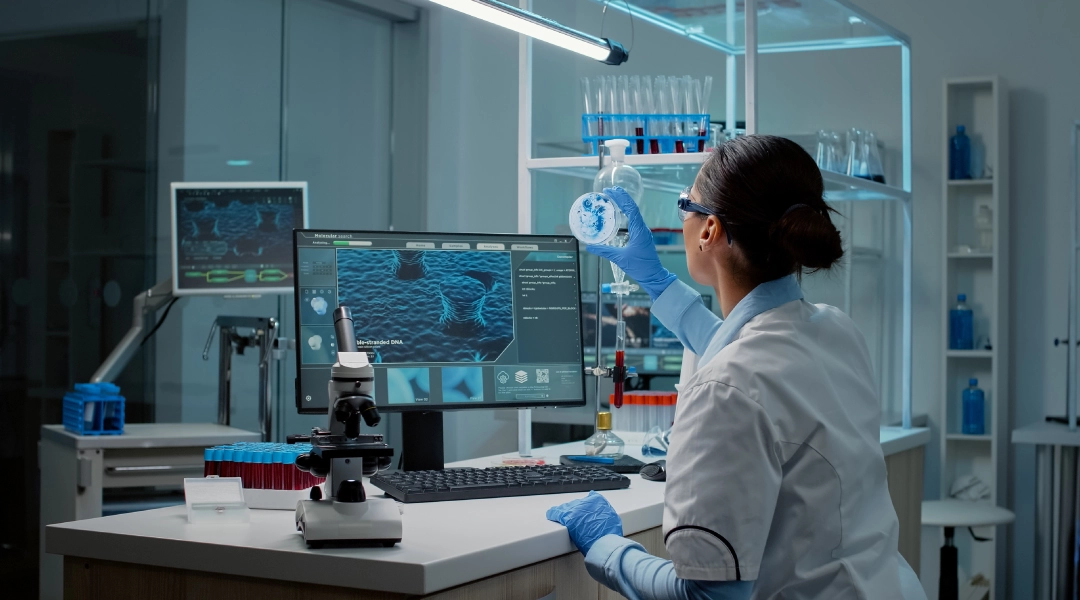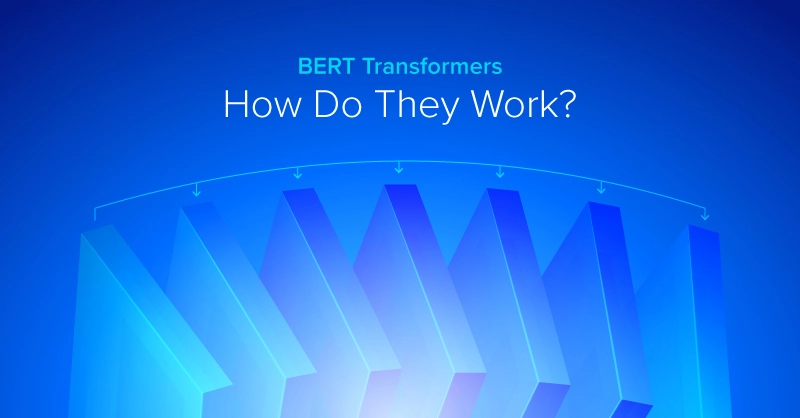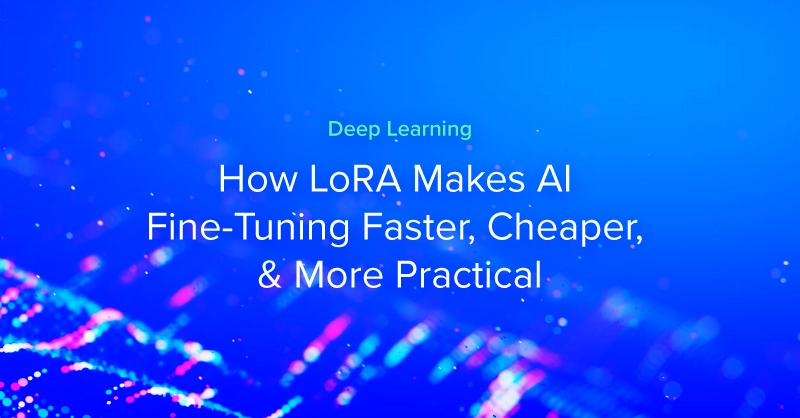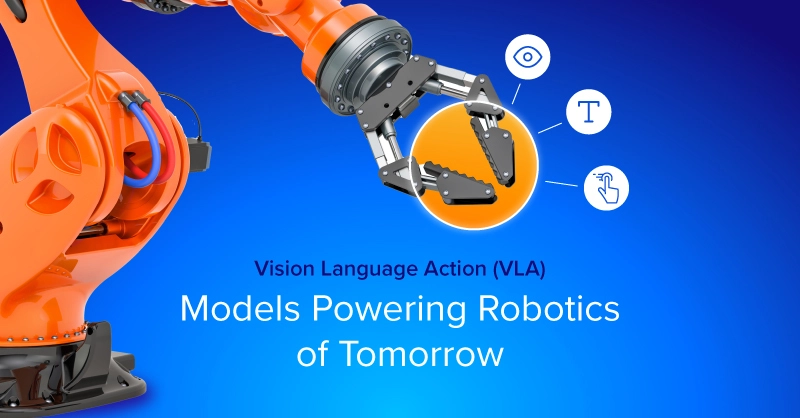
Healthcare Today: NVIDIA DGX A100 and the AI Challenge
2020 was a year of extraordinary change and adaptation. COVID-19 put unbelievable strain on our healthcare system, as well as many other industries. Facing realities around managing costs and new consumer expectations, leaders are looking more closely at technology to pave the way to better collaboration, experiences and outcomes.
New findings in 2020 suggest industry leaders understand more than ever the need to adapt quickly and build a new future for their industry. The complexity and rise of data management and analytics in healthcare captures how technology and innovation has an important role to play in the offerings of the future.
In comes artificial intelligence (AI), an emerging technology, topping the list for the future in healthcare.
Artificial intelligence (AI) and related technologies have increasingly become prevalent in business and society, and is rapidly being adopted throughout every level of healthcare. Several types of AI are already being employed by payers and providers of care, and life sciences companies. The key categories of applications involve: diagnosis and treatment recommendations, patient engagement and adherence, and administrative activities.
Today, AI algorithms are already outperforming radiologists at spotting malignant tumors, and guiding researchers in how to construct cohorts for costly clinical trials - proving that these technologies have the potential to transform many aspects of patient care.
Although there are many instances in which AI can perform healthcare tasks as well or better than humans, it will be many years before AI replaces humans for broad medical process domains. It also seems increasingly clear that AI systems will not replace human clinicians on a large scale, but rather will augment their efforts to care for patients.
Some of the challenges facing healthcare today include: 2x time lost on administrative work vs patients; 12 years average time for drug development; and a 15% average diagnostic error rate. This makes a strong case for business/healthcare transformation powered by machine learning, primarily through neural networks and deep learning.
With technology maturing at a rapid pace, the value of faster ROI has pushed many healthcare use cases into using AI.
- Streamlining Clinical Documentation - AI can help extract data from free text, capture clinical notes, uncover insights and prepare reports.
- Increase precision with robotic surgery - enabling robots to perform minimally invasive incisions at sub-millimeter precision, enabling faster recoveries.
- Increase accuracy of diagnostics - automating parts of radiology workflow and analyzing medical images faster with more accuracy.
- Drug discovery - AI algorithms quickly and accurately predict new drug-disease relationships from data, lowering cost and reducing time to market, speeding up drug discovery.
- Better patient care - Provide personalized care by predicting what treatment protocols are likely to succeed based on patient attributes, and even predicting the probability of future disease.
- Improve safety and mitigate risk - Enabling smart hospitals with smart sensors to ensure safety and operational excellence, from temperature screening to patient monitoring.
The bottom-line: every business needs to transform using AI, not only to survive but to thrive, especially in healthcare! Trying to get there is the real challenge though.
NVIDIA DGX A100
Introducing NVIDIA DGX A100 - a "one system for all" AI infrastructure type of deal.

With 82% of executives fearful of missing the growth objectives of their organizations if they don’t use and scale AI, and 87% who struggle with how to scale AI across their business, why not go with an AI infrastructure that is already optimized and ready for AI at scale? The DGX 100 is a flexible AI infrastructure that adapts to the pace of just about any business.
DGX A100 Highlights
- Is the World’s first 5 PFLOPS AI system, built on NVIDIA A100
- Delivers 20X performance vs prior generation
- Is one universal building block for the AI data center
- Has analytics, training, interference - all in one platform
- Can run any workload of any size on any node - any time
And with 7 out of the top 10 US hospitals already using NVIDIA DGX, DGX has quickly become one of the most trusted solutions by leading healthcare companies.
Today’s healthcare system is facing unprecedented challenges. To meet them, healthcare workers, from doctors to researchers, need powerful, flexible computing tools that will let them work from anywhere—whether they’re in the hospital, in the field, or at home. From On-Prem solutions to Colocation Services, Managed Services or Flexible Leasing Payment Options, why not accelerate your AI Innovation by contacting Exxact today.
Explore Exxact's DGX Solutions to see how we can help make that possible.
Have any questions?
Contact Exxact Today

How NVIDIA DGX A100 Accelerates AI in Healthcare
Healthcare Today: NVIDIA DGX A100 and the AI Challenge
2020 was a year of extraordinary change and adaptation. COVID-19 put unbelievable strain on our healthcare system, as well as many other industries. Facing realities around managing costs and new consumer expectations, leaders are looking more closely at technology to pave the way to better collaboration, experiences and outcomes.
New findings in 2020 suggest industry leaders understand more than ever the need to adapt quickly and build a new future for their industry. The complexity and rise of data management and analytics in healthcare captures how technology and innovation has an important role to play in the offerings of the future.
In comes artificial intelligence (AI), an emerging technology, topping the list for the future in healthcare.
Artificial intelligence (AI) and related technologies have increasingly become prevalent in business and society, and is rapidly being adopted throughout every level of healthcare. Several types of AI are already being employed by payers and providers of care, and life sciences companies. The key categories of applications involve: diagnosis and treatment recommendations, patient engagement and adherence, and administrative activities.
Today, AI algorithms are already outperforming radiologists at spotting malignant tumors, and guiding researchers in how to construct cohorts for costly clinical trials - proving that these technologies have the potential to transform many aspects of patient care.
Although there are many instances in which AI can perform healthcare tasks as well or better than humans, it will be many years before AI replaces humans for broad medical process domains. It also seems increasingly clear that AI systems will not replace human clinicians on a large scale, but rather will augment their efforts to care for patients.
Some of the challenges facing healthcare today include: 2x time lost on administrative work vs patients; 12 years average time for drug development; and a 15% average diagnostic error rate. This makes a strong case for business/healthcare transformation powered by machine learning, primarily through neural networks and deep learning.
With technology maturing at a rapid pace, the value of faster ROI has pushed many healthcare use cases into using AI.
- Streamlining Clinical Documentation - AI can help extract data from free text, capture clinical notes, uncover insights and prepare reports.
- Increase precision with robotic surgery - enabling robots to perform minimally invasive incisions at sub-millimeter precision, enabling faster recoveries.
- Increase accuracy of diagnostics - automating parts of radiology workflow and analyzing medical images faster with more accuracy.
- Drug discovery - AI algorithms quickly and accurately predict new drug-disease relationships from data, lowering cost and reducing time to market, speeding up drug discovery.
- Better patient care - Provide personalized care by predicting what treatment protocols are likely to succeed based on patient attributes, and even predicting the probability of future disease.
- Improve safety and mitigate risk - Enabling smart hospitals with smart sensors to ensure safety and operational excellence, from temperature screening to patient monitoring.
The bottom-line: every business needs to transform using AI, not only to survive but to thrive, especially in healthcare! Trying to get there is the real challenge though.
NVIDIA DGX A100
Introducing NVIDIA DGX A100 - a "one system for all" AI infrastructure type of deal.

With 82% of executives fearful of missing the growth objectives of their organizations if they don’t use and scale AI, and 87% who struggle with how to scale AI across their business, why not go with an AI infrastructure that is already optimized and ready for AI at scale? The DGX 100 is a flexible AI infrastructure that adapts to the pace of just about any business.
DGX A100 Highlights
- Is the World’s first 5 PFLOPS AI system, built on NVIDIA A100
- Delivers 20X performance vs prior generation
- Is one universal building block for the AI data center
- Has analytics, training, interference - all in one platform
- Can run any workload of any size on any node - any time
And with 7 out of the top 10 US hospitals already using NVIDIA DGX, DGX has quickly become one of the most trusted solutions by leading healthcare companies.
Today’s healthcare system is facing unprecedented challenges. To meet them, healthcare workers, from doctors to researchers, need powerful, flexible computing tools that will let them work from anywhere—whether they’re in the hospital, in the field, or at home. From On-Prem solutions to Colocation Services, Managed Services or Flexible Leasing Payment Options, why not accelerate your AI Innovation by contacting Exxact today.
Explore Exxact's DGX Solutions to see how we can help make that possible.
Have any questions?
Contact Exxact Today




.jpg?format=webp)